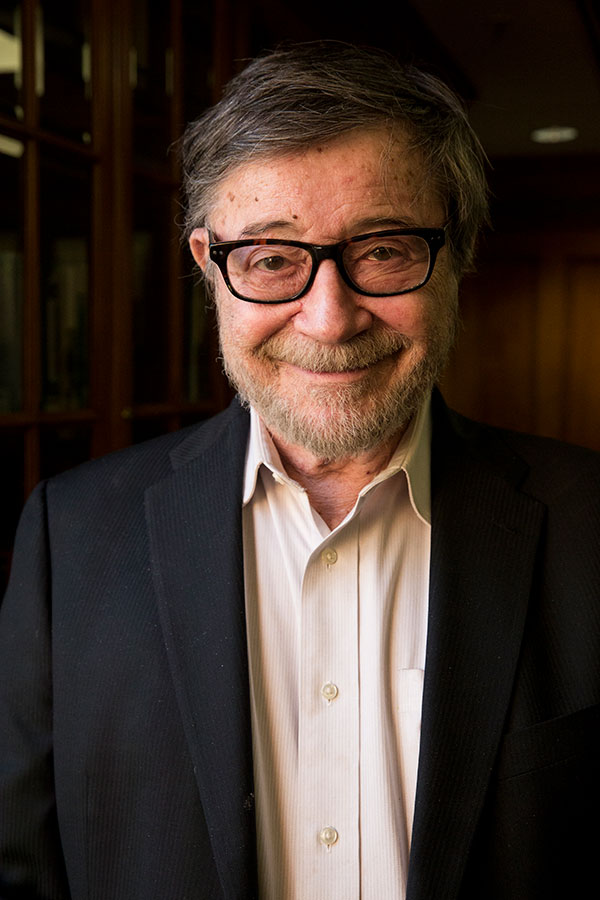PROFESSOR JUDEA PEARL AND THE CAUSAL REVOLUTION
March 30, 2020

In “The Book of Why: The New Science of Cause and Effect”, Professor Judea Pearl, UCLA, wrote:
“The ideal technology that causal inference strives to emulate is in our own mind.
All because we asked a simple question: “Why?”
Causal inference is all about taking this question seriously. It posits that the human brain
is the most advanced tool ever devised for managing causes and effects. Our brains store an
incredible amount of causal knowledge which, supplemented by data, could be harnessed to
answer some of the most pressing questions of our time. More ambitiously, once we really
understand the logic behind causal thinking, we could emulate it on modern computers and
create an “artificial scientist.” This would be a smart robot that discovers yet unknown
phenomena, finds explanations to pending scientific dilemmas, designs new experiments and
continually extracts more causal knowledge from the environment.”
….
“ By far the most important contribution of causal inference to mankind has been to turn
this scientific neglect into a thing of the past. Causal inference has spawned a simple
mathematical language to articulate causal relationships that we know as well as those we wish
to find out about. The ability to express this information in mathematical form has unleashed a
wealth of powerful and principled methods for combining our knowledge with data and
answering causal questions.”
….
“Now, as we enter the era of strong artificial intelligence, and many
tout the endless possibilities of Big Data and deep learning, I find it timely and exciting to
present to the reader some of the most adventurous paths that the new science is taking, the way
it impacts data science, and the many ways in which it will change our lives in the 21st century.”
…
“the problem that initially led me to causation: the problem of automating human-level intelligence (sometimes called “strongAI”)”.
….
“I believe that causal reasoning is essential for machines to communicate with us in our own
language about policies, experiments, explanations, theories, regret, responsibility, free will, and
obligations—and, eventually, to make their own moral decisions.”
…
“My hope is that the new science of causal inference will enable us to better understand how we do it, because there is no better way to understand ourselves than to emulate ourselves. In the age of computers, this new understanding also brings with it the prospect of amplifying our innate abilities, so that we can make better sense of data, be it big or small.”
“The Book of Why: The New Science of Cause and Effect”, rated one of the best science books 2018, provides us with new tools needed to navigate the uncharted waters of causality and the causal revolution.
Professor Judea Pearl has been honored as the 2020 World Leader in AI World Society by Michael Dukakis Institute and the Boston Global Forum. He is a Mentor of AI World Society Innovation Network (AIWS.net).
As a leader in Artificial Intelligence (AI), Professor Pearl invented Bayesian networks, presenting a thoroughgoing calculus of probabilistic inference in a book and an important series of papers in the
1980s. His Bayesian networks have had major impact throughout AI and statistics and have played key roles in fields as diverse as computational biology and error-control coding. He is the author of Heuristics: Intelligent Search Strategies for Computer Problem Solving (1984), which provided foundation for three decades of subsequent work on search and planning in AI. Pearls book on Causality: Models, Reasoning, and Inference (2nd ed., 2009) introduces a calculus that enables machines to reason about actions and observations and assists scientists in assessing cause-effect relationships from empirical data. His research serves as the foundation for Google searches, credit-
card fraud detection systems, and automated speech recognition systems. Pearl was also awarded the
Association for Computing Machinery’s A.M. Turing Award (2011).
AIWS strongly believe that the ideas and methodology of Professor Judea Pearl will be a very important breakthrough for AI, specifically to build a better world with it. Therefore, we open the special section “Modern Causal Inference” on AIWS.net.
As a Mentor of AIWS.net, Professor Judea Pearl helps set up and lead this section Modern Causal Inference (MCI) to encourage:
The section Modern Causal Inference has 5 parts:
We welcome your joining and contribution to Modern Causal Inference at AIWS.net.
AI World Society - Powered by BGF